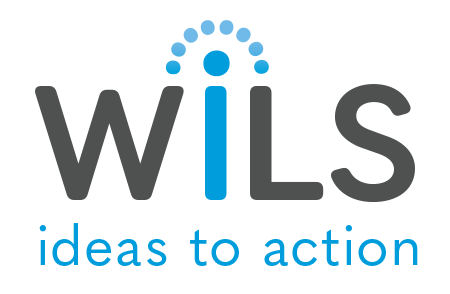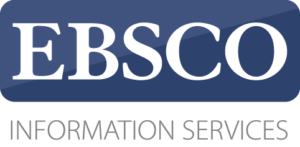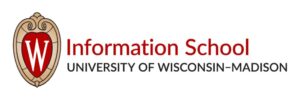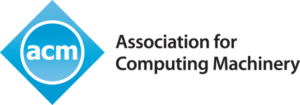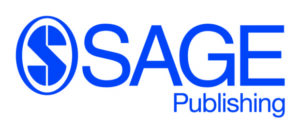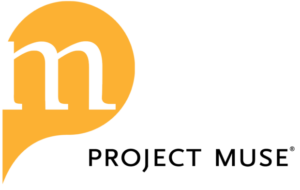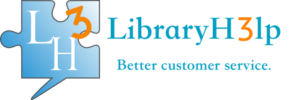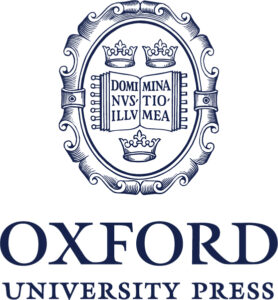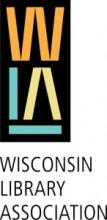
Thank you for attending WiLSWorld! Feel free to peruse the slides from the programs and workshop presentations!
WiLS’ annual conference on innovative library practices in technology and collaboration brings together our members from across Wisconsin and beyond to share ideas, connect with one another, and learn about developments in the field.
This year, WiLSWorld will be held on July 23rd, with workshops on July 24th, at the Pyle Center in Madison.
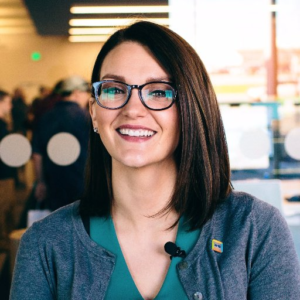 We are excited to share that WiLSWorld’s 2019 Keynote Speaker will be Rebecca Stavick, Executive Director of Do Space in Omaha, co-founder of Open Nebraska, Library Journal Mover & Shaker, and member of the Urban Libraries Council Executive Board.
We are excited to share that WiLSWorld’s 2019 Keynote Speaker will be Rebecca Stavick, Executive Director of Do Space in Omaha, co-founder of Open Nebraska, Library Journal Mover & Shaker, and member of the Urban Libraries Council Executive Board.
Do Space is the nation’s first technology library. Since opening in 2015, Do Space has been featured on NPR’s All Things Considered and in the 2016 American Libraries Design Showcase. Stavick joined the Do Space project during its earliest stages to lead the development of programs, services, and operations. She actively manages Do Space relationships, direction, and strategy, bringing technology industry leadership and five years of public library sector experience to her role.
Prior to developing the Do Space project, Stavick earned a Master of Library and Information Science degree from San Jose State University. While serving as Nebraska’s first Code for America Brigade Captain in 2012, she co-founded Open Nebraska, a local organization focused on open data advocacy and civic application development. Stavick is a Library Journal Mover & Shaker award recipient (2018), a “40 Under 40” Omaha Business Executives award recipient (2016), and a current member of the Urban Libraries Council Executive Board.
Read more about Rebecca Stavick on her website.
More WiLSWorld 2019 highlights include:
- Plenary speaker, Madison Public Library – Pinney Branch’s own Sarah Lawton, LJ Mover & Shaker, featured speaker at Library Journal’s Design Institute, and member of the PLA Task Force on Equity, Diversity, Inclusion and Social Justice.
- Programs on library data, web accessibility, ebook innovations, Pressbooks, expanding broadband access, and so much more!
- Happy hour (with free snacks!) at Camp Trippalindee
- Morning workshops on how to get things done with process design, talking the language of user experience, and making the case for open educational resources
- A reduced-cost afternoon workshop on the role of libraries in advancing racial equity with plenary speaker Sarah Lawton and Gordon F. Goodwin from the Government Alliance on Race and Equity, a program of Race Forward.
WiLS is very grateful to our conference sponsors and the conference planning team for their work!
Schedule and Programs
WiLSWorld – July 23, 2019
8:30-9:00 Coffee and Registration sponsored by the American Chemical Society
9:15-10:30 Room 313 Keynote Address: Don’t Ask Permission
Rebecca Stavick, Executive Director of Do Space, Co-Founder of Open Nebraska
Disrupting the status quo is difficult and uncomfortable work. In the Midwest, as well as in the library profession, we often value being polite over challenging the established way of doing things — even if those things are holding us back. In this talk, Stavick will discuss how the future of libraries depends on our ability to turn uncomfortable conversations into positive action. Attendees will learn how to think like a hacker in order to overcome barriers in their work, and how to leverage the philosophy of #goodtrouble to empower our communities.
10:45-11:45 Concurrent Sessions I
10:45-11:45 Room 309 Getting Better Broadband in Your Community
Gail Huycke, Community Development Specialist with the University of Wisconsin-Extension Center for Community and Economic Development
Many communities in Wisconsin have a need for better access, adoption, and affordability for broadband. But how can libraries and other organizations help make change in this area?
In this program, attendees will learn interesting models that some communities have adopted for increasing broadband, organizations and programs that can help with broadband expansion, and how to begin having the conversation around expanding broadband in their communities.
10:45-11:45 Room 313 Where Are We Headed With Ebooks?
John Bracken, Executive Director of DPLA
Mitchell Davis, Co-Founder and Chief Business Officer of BiblioLabs
John and Mitchell, two ebook and publishing thought leaders, will talk about their current work and share what they see on the horizon for the publishing and ebook industries and the roles libraries may plan in this changing ecosystem.
10:45-11:45 Room 335 Intro to Web Accessibility
Ashley Dzick, Adjunct Associate Professor, Humanities, Social Science, and Communications Department, Milwaukee School of Engineering
Anyone should be able to use your website; whether they are blind, deaf, or have a broken arm. Inclusive design accounts for all of these; it’s a method of thinking that works to provide a more meaningful experience for your entire audience, no matter whom or where they are. We’ll walk through a brief introduction to accessibility, why accessibility matters, and the changes required to be WCAG accessibility compliant. Participants will also get a chance to interact with leading accessibility tools and gain first-hand experience of what it is like to use a screen reader, magnifier, and other assistive devices that have a significant impact on how users interact with websites.
12:00-1:00 Pyle Alumni Lounge – Lunch
1:15-2:30 Room 313 Afternoon Plenary – Building Belonging: Libraries and Social Justice
Sarah Lawton, Neighborhood Library Supervisor, Madison Public Library
Libraries exist at the intersection of institution and community, an opportune space for building compassion and supporting collective action. Sarah will explore the ways that libraries around the country are working with their communities to challenge systemic racism, break down barriers, and confront oppression.
2:45-3:45 Concurrent Sessions II
2:45-3:45 Room 309 Engaged and Thriving: Building Peer Support Systems for Staff
Kim Boldt, Branch Manager, Milwaukee Public Library
Melody Clark, Community Liaison and Service Specialist, WiLS
Andi Coffin, Community Liaison and Service Specialist, WiLS
Nathan Dowd, Library Director, Edgewood College
According to a Gallup study, employees who are “engaged and thriving” are 59 percent less likely to look for a job with a different organization in the next 12 months. How do people stay “engaged and thriving?” One key component is feeling supported. The structure in organizations to support employees is more than just chance, and thoughtfully developing a structure for peers to support one another can be a valuable component in developing employee well-being.. In this program, presenters will share deliberately developed approaches to peer support in their institution.
2:45-3:45 Room 313 Too Much and Not Enough: Data and Libraries
Melissa McLimans, Community Liaison and Service Specialist, WiLS
2:45-3:45 Room 335 The Library as Publisher: How Pressbooks Supports Knowledge Sharing
Steel Wagstaff, Educational Client Manager, Pressbooks
Libraries and library staff have been collecting, analyzing, and using data for a long time, but with emerging technologies and new abilities to track and share information about our services, we are now expected to do more and more with data. But, what data should we be tracking? What decisions can be helped by looking at certain data points (and what are those data points)? How much should we spend on data when there are so many other demands for our time? Are we really going to use all that data? Really? Really?
In this session, Melissa McLimans, a member of the WiLS consulting team, will share some examples of data-driven decisions that libraries can make using easy to collect information and will lead a conversation with attendees to talk about:
- What data is being used to make decisions or to advocate for your library?
- What are the barriers to data use and what can help overcome them?
- How can we most efficiently collect, analyze, and share data that will have the biggest impacts for our libraries?
Data experts and novices, believers and doubters, academic, public, special, or K12, are all encouraged to attend. Come with ideas and questions for a lively conversation and the chance to build connections with others around the topic of library data.
2:45-3:45 Room 335 The Library as Publisher: How Pressbooks Supports Knowledge Sharing
Steel Wagstaff, Educational Client Manager, Pressbooks
Pressbooks is an open-source book publishing platform that makes it easy for authors to publish books on the web and produce clean, well-formatted exports in multiple formats, including ebooks, print-ready PDFs, and various XML flavors. In this presentation, Pressbooks’ educational client manager Steel Wagstaff will outline the values and principles that have motivated the development of this platform and share some of the ways that libraries (both academic and public) and other educational institutions are using Pressbooks to publish a wide variety of content, from openly licensed textbooks to self-authored novels and just about everything in between.
4:00-4:45 Concurrent Sessions III
4:00-4:45 Room 309 Choosing Privacy: Raising Awareness and Engaging Patrons in Privacy Issues
Rob Nunez, Division Head for Support Services, Kenosha Public Library
Personal privacy is no longer a guarantee in today’s society, but libraries are still seen as a safe haven for the public. While libraries change to keep up with technical needs, there are times we are swept up with whether or not we can, we never stop to ask if we should. With some libraries sharing full patron records with school administrations and others being tempted to bring in facial recognition into their spaces, it’s still a professional duty to respect and promote privacy. In this talk we will cover the ALA Privacy Subcommittee’s work, and what libraries can do to get involved.
4:00-4:45 Room 313 Lightning Talks: Community Engagement Showcase
Jennifer Bernetzke, Schreiner Memorial Library
Gail Huycke, UW-Extension Center for Community and Economic Development
Kristen Leffelman, Wisconsin Historical Society
Kristen Maples, UW-Madison iSchool
Tessa Michaelson Schmidt, Wisconsin Department of Public Instruction
Jane Roisum, Fox Valley Technical College
Tasha Saecker, Appleton Public Library
Kristen Whitson, UW-Madison iSchool
Wisconsin libraries are “turning outward” in all kinds of creative ways to cultivate positive change in their communities. Hear about a wide range of community engagement projects, including successes, challenges, and lessons learned.
4:00-4:45 Room 335 7(ish) Steps to Organize a Wikipedia Edit-a-Thon
Meghan Dowell, Teaching & Learning Librarian, Carroll University
Wikipedia edit-a-thons are growing in popularity in both academic and public libraries. However, organizing one can seem onerous especially if there is a lack of experience working in or editing Wikipedia. In this session, we will talk about the 7 (or so) steps to creating a successful edit-a-thon, discover resources to help familiarize the library staff with Wikipedia, and even make an edit or two.
5:00 Room 313 WiLSWorld prize give-away, sponsored by EBSCO
5:00-7:00 Camp Trippalindee Happy hours! Sponsored by the American Chemical Society
WiLSWorld Workshop Wednesday – July 24, 2019
8:30-9:00 Coffee and registration
9:00-Noon Morning Workshops
9:00-Noon Room 309 User Experience: Crafting Recommendations
Maria Dahman, User Experience Researcher, University of Wisconsin-Madison
You’ve gathered website analytics, run surveys, and observed how people use your website and other digital resources– now what? Impressive user research doesn’t matter much if the research isn’t used. More than just communicating what we learned in our research, communicating what we recommend for website or application improvements and framing the recommendations to our audiences in meaningful ways is a skill of its own. In this workshop, we’ll look at findings from several types of research projects and work through positive and negative examples of how the findings are used to create recommendations. This is useful for both qualitative user experience research (interviews, usability testing) and quantitative research (page analytics, usability scales). Be a better advocate for your users. Make the hard work from your interviews and other user research count!
9:00-Noon Room 313 Process Design: Getting from Here to There
Stef Morrill, Executive Director, WiLS
Melissa McLimans, Community Liaison and Service Specialist, WiLS
Drawing on previous WiLSWorld Workshops on project management, design thinking, and lean practices, this workshop will teach you the WiLS model of process design. You’ll learn to define your objective (addressing an issue, developing a collaboration, pursuing an opportunity, etc.) and determine the steps, activities, tools, and people that should be involved to get you there. We want this workshop to relate to your real-world work, so each attendee will be asked to identify an issue or objective they want to address at their library or organization. By the end of the workshop, you will know how to confirm and clarify your objective and create a roadmap that will guide your work toward successfully addressing your objective.
12:00-1:00 Lunch
Lunch is on your own but feel free to ask WiLS for recommendations!
1:00-5:00 Room 313 The Role of Libraries in Advancing Racial Equity
Gordon F. Goodwin, Government Alliance on Race and Equity Midwest Regional Project Manager, Race Forward
Sarah Lawton, Neighborhood Library Supervisor, Madison Public Library
 We know libraries to be places of learning, gathering, and growth. We know libraries to be ideally situated to do the work of bringing together our community members as well as individually providing information services to them. We also know libraries to be organizations that have perpetuated inequities, historically and today. We must take a critical look at our practices and policies and move toward improving the broadest possible access to our valuable resources, services, and staff. We hope you’ll join us for this workshop with WiLS and your colleagues to do that work together.
We know libraries to be places of learning, gathering, and growth. We know libraries to be ideally situated to do the work of bringing together our community members as well as individually providing information services to them. We also know libraries to be organizations that have perpetuated inequities, historically and today. We must take a critical look at our practices and policies and move toward improving the broadest possible access to our valuable resources, services, and staff. We hope you’ll join us for this workshop with WiLS and your colleagues to do that work together.
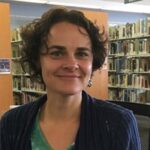 Workshop attendees will gain an understanding of the library’s role in contributing to racial inequity and our responsibility to advance racial equity and develop a shared racial equity analysis, including definitions of key terminology and concepts like racial equity and inequity, implicit and explicit bias, and individual, institutional, and structural racism.
Workshop attendees will gain an understanding of the library’s role in contributing to racial inequity and our responsibility to advance racial equity and develop a shared racial equity analysis, including definitions of key terminology and concepts like racial equity and inequity, implicit and explicit bias, and individual, institutional, and structural racism.
Our workshop curriculum is provided by The Government Alliance on Race and Equity (GARE), a program of Race Forward. GARE is a national network of government working to achieve racial equity and advance opportunities for all. GARE libraries’ racial equity work and insights will be featured during the training. To ensure that this workshop is as accessible to our members as possible, registration costs are being subsidized by WiLS.
WiLSWorld 2019 Planning Team
WiLSWorld 2019 couldn’t happen without the work of this amazing planning team:
Dan Bostrom, RAILS
Josh Cowles, Fond du Lac Public Library
John Klima, Waukesha Public Library
Maureen Olle-LaJoie, UW-River Falls
Keith D. Schroeder, School District of Marinette
Angela Vanden Elzen, Lawrence University
WiLSWorld 2019 Sponsors
WiLS is very grateful to our vendor partners who are showing their support for WiLSWorld and its attendees! We extend our deepest thanks to these sponsors:
If your organization would like to support WiLSWorld 2019, please fill out this form. Thank you for your support of WiLSWorld and WiLS members!
WiLS Cancellation Policy
Cancellations must be made at least two business days prior to the event in order to receive a refund. If a registrant cancels less than two working days prior to the date of the event, the registrant remains responsible for payment; no fees will be refunded. We are unable to refund Eventbrite fees. These fees include a service fee from Eventbrite (2% + $0.99 per ticket) as well as credit card processing fees (3%).
A substitute may take the place of the original registrant, but either the registrant or their institution is responsible for coordinating and communicating changes to WiLS. Cancellations and/or substitutions may be reported to WiLS at information@wils.org.
If an event is canceled by WiLS, due to low registration or inclement weather, registrants will be notified and all fees will be refunded.
